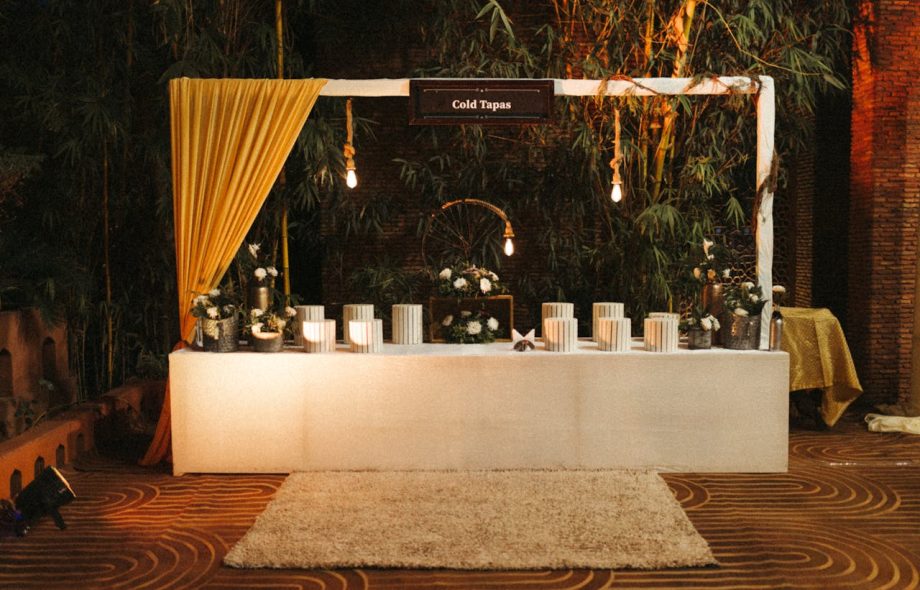The events industry has long been associated with large-scale productions, elaborate décor, and often, significant waste. But in recent years, sustainability has shifted from being a “nice-to-have” consideration to an absolute necessity in event planning. Companies, attendees, and stakeholders are no longer satisfied with flashy events that leave a heavy environmental footprint; they expect gatherings to align with modern values of responsibility and care for the planet.
Here’s why sustainability is now central to event planning, and how businesses can adapt without compromising quality or impact.
1. Rising Environmental Awareness
Climate change, resource depletion, and pollution are top-of-mind issues globally. Audiences today are more eco-conscious and quick to question organisations that appear careless with waste or carbon emissions. An event that overlooks sustainability can come across as outdated, or worse, irresponsible.
By contrast, eco-friendly practices such as digital invitations, reusable décor, and sustainable catering show a company is paying attention to broader environmental concerns.
2. Corporate Responsibility and Brand Reputation
Sustainability has become a core part of corporate social responsibility (CSR) strategies. Hosting a green event reinforces a company’s commitment to these values, boosting credibility with clients, employees, and partners.
Brands that weave sustainability into their events don’t just avoid criticism; they often gain positive publicity. Attendees appreciate when businesses practice what they preach, especially when environmental impact is involved.
3. Cost Savings Through Smarter Choices
Contrary to the belief that sustainability costs more, eco-friendly event planning often saves money. Examples include:
- Digital tools are replacing printed programs and signage.
- Energy-efficient lighting and AV equipment are lowering power bills.
- Local vendors and seasonal menus cut transportation and catering expenses.
In many cases, sustainable solutions align with budget-friendly event planning, creating a win-win situation.
4. Growing Stakeholder and Attendee Expectations
Stakeholders, from investors to employees, now expect companies to demonstrate environmental responsibility in every aspect of their operations, including events. Likewise, attendees increasingly favour experiences that reflect their own values.
From compostable tableware to reduced single-use plastics, guests notice and appreciate sustainable choices. Events that prioritise these details make participants feel good about being part of something bigger than the event itself.
5. Compliance with Regulations and Industry Standards
Cities and venues worldwide are adopting stricter sustainability requirements, such as bans on single-use plastics, mandatory recycling, or waste reduction targets. Corporate event planners who ignore these changes risk non-compliance, fines, or reputational damage.
Planning with sustainability in mind not only keeps you compliant but also positions you as forward-thinking in a rapidly evolving industry.
6. Innovation and Competitive Advantage
Sustainable event planning pushes organisers to think creatively. From repurposed décor to apps that minimise paper use, green solutions often spark innovation. Companies that embrace these practices can stand out in a competitive market, appealing to both eco-conscious clients and talented employees who want to work with values-driven organisations.
7. Long-Term Impact Beyond the Event
Events may last a day or two, but their impact lingers. Waste generated, carbon emitted, and resources consumed can add up quickly across an industry that thrives on frequent gatherings. Sustainable practices, like waste diversion programs, carbon offset initiatives, and donations of leftover food, help ensure events leave a positive legacy rather than a negative footprint.
How to Put Sustainability Into Practice
For organisations ready to embrace eco-friendly event planning, here are actionable steps:
- Go digital: Use apps or QR codes for schedules, maps, and networking.
- Choose green venues: Opt for spaces with certifications for energy efficiency and waste management.
- Rethink catering: Focus on local, seasonal, and plant-based menus.
- Cut single-use plastics: Provide refillable water stations and reusable dishware.
- Measure and offset: Track your carbon footprint and invest in offset projects.
Final Thoughts
Sustainability is no longer optional in event planning; it’s an expectation. As environmental awareness grows and corporate responsibility takes centre stage, green practices are becoming a benchmark for professionalism and relevance in the events industry.
By prioritising sustainability, planners not only reduce environmental impact but also enhance brand reputation, cut costs, and deliver experiences that resonate with modern audiences. In short, eco-friendly events don’t just make sense for the planet; they make sense for business.
 :
https://pin.it/1kLgJFmNT
:
https://pin.it/1kLgJFmNT

